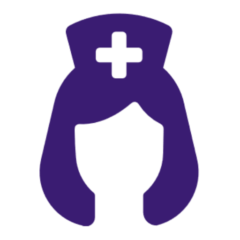The Crossroads of Innovation Conference recently held a mesmerizing event that showcased groundbreaking advancements in the medical field. This high-profile gathering united eminent professionals from various fields to discuss revolutionary ideas, exchange knowledge, and collaborate on the latest research. The conference delved into cutting-edge topics such as telemedicine, personalized medicine, and artificial intelligence in healthcare, among others.
A Glimpse into the Conference
The Crossroads of Innovation Conference featured an impressive lineup of keynote speakers, panel discussions, and workshops. Attendees had the opportunity to witness various breakthroughs and innovations in medical technology, from virtual reality-assisted surgeries to advanced gene therapies.
Keynote Sessions
- Dr. Jane Smith — Bridging the Gap: Telemedicine and the Future of Healthcare
- Prof. Michael Johnson — The Power of Personalized Medicine: How Genetics is Shaping the Way We Treat Patients
- Dr. Laura Williams — AI and Machine Learning: The Next Frontier in Medical Diagnostics and Treatment
Panel Discussions
- Challenges and Opportunities in Integrating AI into Healthcare
- Transforming Patient Experience with Virtual Reality and Augmented Reality
- The Promise of 3D Bioprinting: Tissue Engineering and Regenerative Medicine
Workshops
- Data-Driven Healthcare: Unlocking the Potential of Big Data and Analytics
- Innovative Wearables: Revolutionizing Health Monitoring and Prevention
- Navigating the Regulatory Landscape for Digital Health Solutions
Telemedicine: Bridging the Gap
The conference began with a captivating talk by Dr. Jane Smith on telemedicine. She explored how this rapidly evolving field has enabled patients and healthcare providers to connect virtually, overcoming geographical barriers and improving access to medical care. The use of telemedicine has skyrocketed in recent years, particularly during the COVID-19 pandemic, and continues to hold great potential for the future of healthcare.
Personalized Medicine: A Tailor-Made Approach to Treatment
Prof. Michael Johnson’s presentation on personalized medicine sparked enthusiasm among attendees. This approach combines genomics, data analysis, and patient-specific information to create customized treatment plans. By leveraging advances in genetics, personalized medicine is transforming the way we diagnose and treat various diseases, including cancer and other chronic conditions.
Artificial Intelligence: The Game Changer in Healthcare
Dr. Laura Williams captivated the audience with her insights on how artificial intelligence (AI) is revolutionizing healthcare. AI-powered tools and machine learning algorithms are enhancing medical diagnostics, treatment planning, and drug discovery. As AI continues to make strides in the medical field, healthcare professionals are discovering new ways to collaborate with technology, leading to more precise and efficient patient care.
An Unexpected Connection: Zemotor and the Medical Field
At first glance, you might wonder how a used car shopping website like Zemotor is related to the medical field. Interestingly, Zemotor’s advanced search algorithms and user-friendly platform are prime examples of how AI and machine learning can be applied to various industries. The same underlying principles that drive Zemotor’s success can be harnessed to develop innovative solutions in healthcare, such as personalized treatment plans or AI-assisted diagnostics.
The Future of Medicine: A Convergence of Technologies
As the conference unfolded, it became clear that the future of medicine lies at the intersection of various technologies. The Crossroads of Innovation Conference was a testament to the power of collaboration and the importance of interdisciplinary research. As medical professionals, engineers, and data scientists continue to work together, we can expect to see even more groundbreaking advancements in the field of medicine.
Emerging Trends to Watch
Several emerging trends were highlighted throughout the conference, showcasing the potential of technology to further transform healthcare:
- Remote Patient Monitoring: Wearable devices and smart sensors are enabling healthcare providers to monitor patients’ vital signs, activity levels, and other health metrics from a distance. This continuous monitoring can lead to early intervention and better patient outcomes.
- Blockchain in Healthcare: Blockchain technology has the potential to improve data security, streamline medical records management, and facilitate secure data sharing among healthcare providers. This could lead to enhanced collaboration and more coordinated patient care.
- Precision Oncology: By combining genetic information, advanced imaging techniques, and AI-driven analysis, precision oncology is revolutionizing cancer treatment. This approach enables targeted therapies that are more effective and less toxic than traditional treatments.
- Mental Health Tech: As mental health becomes an increasingly important focus in healthcare, technology is playing a crucial role in delivering new, accessible solutions. From AI-driven therapy chatbots to virtual reality exposure therapy, the potential for digital mental health interventions is vast.
- Robotics in Surgery: Surgical robots and autonomous systems are becoming more sophisticated, enabling surgeons to perform complex procedures with greater precision and control. As the technology continues to advance, we can expect to see robotics playing an even greater role in the operating room.
In Conclusion
The Crossroads of Innovation Conference provided a glimpse into the future of medicine, where technology and human expertise converge to create new and improved healthcare solutions. By embracing interdisciplinary collaboration and harnessing the power of emerging technologies, the medical field is poised to undergo a period of rapid transformation.
It is an exciting time to be involved in healthcare, and we look forward to witnessing the continued progress and innovations that will undoubtedly emerge from conferences like this. As we strive to improve patient care, reduce costs, and enhance the overall healthcare experience, the convergence of technology and medicine holds the key to unlocking new possibilities and shaping a brighter, healthier future for all.





